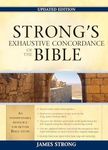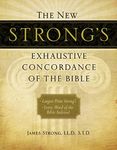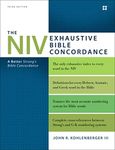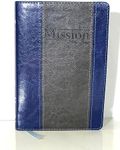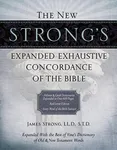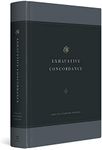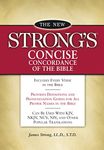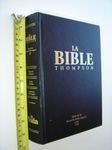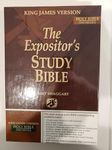Buying Guide for the Best Bible Concordances
Choosing the right Bible concordance can greatly enhance your study and understanding of the Bible. A concordance is a valuable tool that helps you find where specific words or phrases appear in the Bible, making it easier to study themes, concepts, and the context of passages. When selecting a Bible concordance, it's important to consider several key specifications to ensure it meets your needs and preferences. Here are some important factors to consider and how to navigate them.ComprehensivenessComprehensiveness refers to the extent of the concordance's coverage of words and phrases in the Bible. A more comprehensive concordance will include a larger number of entries, making it easier to find specific references. If you are a serious Bible student or researcher, you may prefer a highly comprehensive concordance. For casual study, a less comprehensive concordance may suffice. Consider how in-depth you want your study to be when choosing the level of comprehensiveness.
TranslationThe translation of the Bible that the concordance is based on is crucial. Concordances are typically specific to a particular Bible translation, such as the King James Version (KJV), New International Version (NIV), or English Standard Version (ESV). Choose a concordance that matches the translation of the Bible you use most frequently. This ensures that the words and references align correctly with your Bible.
Ease of UseEase of use refers to how user-friendly the concordance is. This includes the layout, indexing, and any additional features like cross-references or topical guides. A concordance with a clear, organized layout and easy-to-navigate index will save you time and frustration. If you are new to using concordances, look for one with a simple and intuitive design. More experienced users might appreciate additional features that provide deeper insights.
Additional FeaturesSome concordances come with additional features such as Hebrew and Greek dictionaries, topical indexes, or study guides. These can provide extra layers of understanding and context. If you are interested in original language studies or thematic research, these features can be very beneficial. Consider what additional tools might enhance your study and look for a concordance that includes them.
Size and PortabilityThe size and portability of a concordance can affect how and where you use it. Larger, more comprehensive concordances may be less portable but offer more detailed information. Smaller, more compact concordances are easier to carry and use on the go but may have fewer entries. Think about where you will be using your concordance most often and choose a size that fits your lifestyle and study habits.
